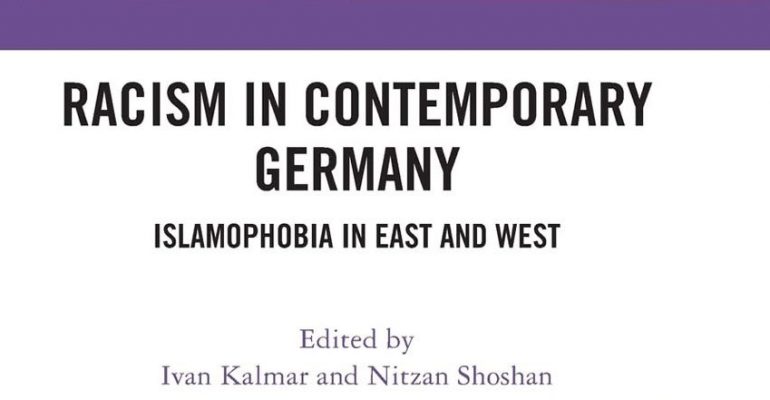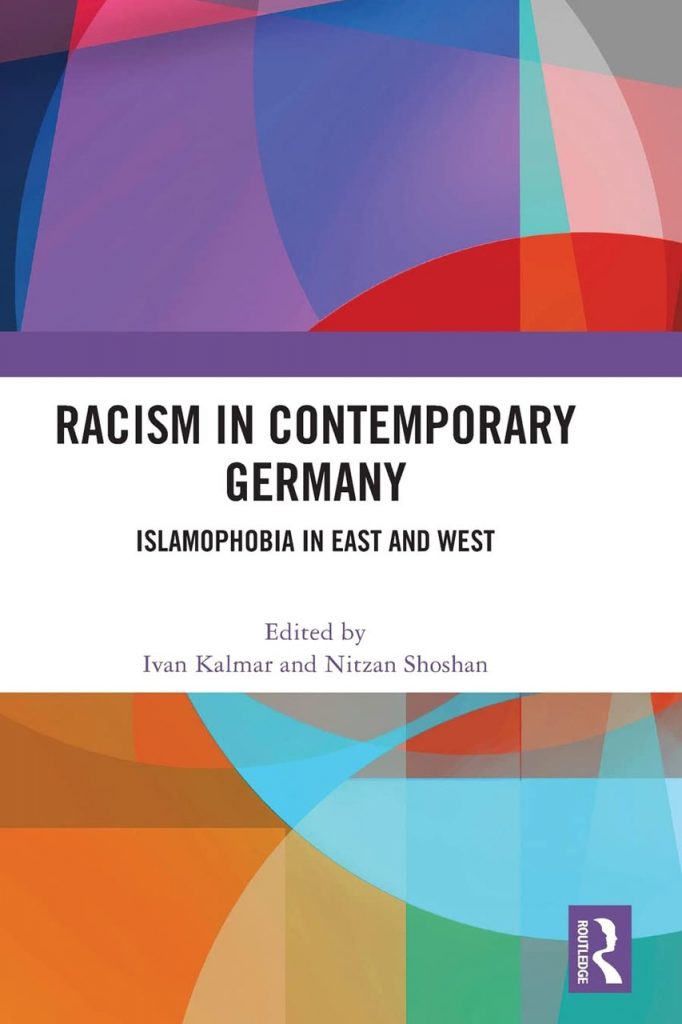Racism in Contemporary Germany: Islamophobia in East and West
February 26, 2024 2024-04-20 18:37Racism in Contemporary Germany: Islamophobia in East and West

Racism in Contemporary Germany: Islamophobia in East and West
Racism in Contemporary Germany: Islamophobia in East and West
Edited By Ivan Kalmar, and Nitzan Shoshan
Publisher: Routledge
Publication Date: January 29, 2024
ISBN: 9781032260617
This book presents a critical and empirically informed examination of Islamophobia and related issues of racism and nationalism in Germany today, with particular attention to the East/West distinction. The authors, representing several disciplines such as anthropology, sociology, and media and literary studies, situate the topic in the global and German context of the 2015-16 “migration crisis” and its aftermath, and of the ongoing transformations seen in the post-socialist regions of the European Union.
Since the 2015-16 “refugee crisis,” illiberal leaders and parties within Europe have instrumentalized Islamophobia in an attempt to dislodge the traditional political elites. Strikingly, such illiberal movements have been most successful in the formerly socialist areas of the EU. This is mirrored within Germany itself, where political formations with an Islamophobic agenda remain more popular in the East than in the West. This volume examines the reasons for this difference, including not only the ideological heritage of Soviet-dominated socialism but also the effects of western interventions in the formerly socialist areas in and beyond Germany since the end of the Cold War. Some Islamophobic and other hateful tendencies were in fact introduced from, and continue to prosper also, in the West.
The chapters in this book were originally published as a special issue of the Journal of Contemporary European Studies.
Table of Contents
Preface
Introduction: Islamophobia in Germany, East/West
1. The east is just like the west, only more so: Islamophobia and populism in Eastern Germany and the East of the European Union
2. Building a new nation: anti-Muslim racism in post-unification Germany
3. Islamophobia East-West and the politics of hospitality in contemporary Germany
4. Gendered identities and German Islamophobias
5. ‘The burqa is not us (wir sind nicht burka)’: strategic Islamophobia and the mainstreaming of nativist appeals
6. Islamophobia and anti-Muslim feeling in Saxony – theoretical approaches and empirical findings based on population surveys
About the Editors
- Ivan Kalmar is Professor of Anthropology at the University of Toronto. Over his career, much of his work has focused on the image of Jews and Muslims in western cultural history. He is the author of Early Orientalism: Imagined Islam and the Notion of Sublime Power (Routledge) and co-editor of the volume, Orientalism and the Jews. More recently, Kalmar’s work has focused on illiberalism in the European Union, and especially in Central Europe. He has guest-edited a special issue of Patterns of Prejudice, dealing with Islamophobia in the East of the European Union, and a special issue on Islamophobia in Germany: East/West, for the Journal of Contemporary European Studies. His latest book is White But Not Quite: Central Europe’s Illiberal Revolt (2022). A special issue on Race and the East of the European Union, co-edited by Kalmar, is scheduled to be published by the Journal of Ethnic and Migration Studies in the spring of 2022.
- Nitzan Shoshan is Professor of Anthropology in the Centro de Estudios Sociológicos at El Colegio de México. His prize-winning book, The Management of Hate: Nation, Affect, and the Governance of Right-Wing Extremism in Germany (2016) is an ethnographic study of young right-wing extremist groups in East Berlin. He has guest-edited a special issue of Anthropological Quarterly on post-Fordist Affect and a special issue of the Journal of Contemporary European Studies on Islamophobia in Germany: East/West. His work has focused on nationalism and the far right in Germany and Europe. He has also written on urban marginality in Mexico and on the ethics of ethnographic fieldwork.
Source: Routledge








